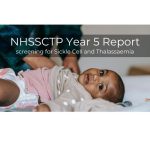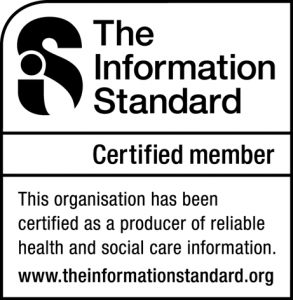This is a report on external research. It is not endorsed by the Sickle Cell Society and does not form part of our Information Standard-accredited information
Tony Duffy, MSc Human Sexuality, Dip. Couns, RMN
Introduction
Human sexuality is an integral part of our existence, a vital aspect of humanity and an important determinant of health status. Aside from reproduction, sexual behaviour serves other important functions such as fostering intimacy and as a source of pleasure.
The complex interplay of physiological and psychological processes that make up sexuality can be affected by the presence of chronic disease.
A review of the medical and research literature highlights several negative effects of Sickle Cell Disease (SCD) on sexual development and function in men such as delayed sexual maturation, sex hormone disturbances, priapism (persistent painful erection usually requiring medical attention), erection problems and reduced fertility. At present there is no information available for sufferers or others with an interest in SCD on this aspect of the disease other than the limited information to be found in medical texts which does not reach a lay audience.
Aim of study
This study which was carried out as part of a Master’s degree in Human Sexuality sought to explore the sexual experiences of men with SCD and to use the qualitative data thus obtained as a valuable insight into this disease with possible implications for health education, information services, disease management, counselling and further research.
Method
Audio-taped semi-structured interviews.
Participant Characteristics:
The sample consisted of five Afro-Caribbean men with an average age of 27, all with a diagnosis of Sickle Cell Anaemia.
With regard to previous literature of the impact of SCD on sexual function in men, the following symptoms/complications were described by the participants:
Delayed sexual development/puberty: 2
Prolonged detumescence times (where erection subsides very slowly) 2
Priapism (painful erection) 2
Erectile problems 2
Mobility problems (restricting sexual positions/ activity) 2
Reduced fertility 2
One participant discovered that he was subfertile whilst planning a family. This was not an issue for other participants as they were not yet concerned with having a family.
Main Themes:
The following six major themes were highlighted.
1. Restrictions
Sexual activity may have to be ‘planned’ around the disease leading to a lack of spontaneity.
Partner choice is often restricted because of concerns of passing SCD to their children.
Sexual activity/positions restricted both directly and indirectly due to pain or disease complications.
2. Sex and pain
Some men experienced painful erections which required hospital treatment.
Crises may be induced during sexual activity
Disease complications i.e. arthritis, leg ulcers can cause pain during sexual activity.
3. Monitoring
Monitoring of self, others and the disease in sexual/relationship situations becomes a form of distraction and may detract from the pursuit and enjoyment of sexual situations.
4. Loss of control/dependency
The impact of the disease often leads men to feel that they had very little control over their bodies and that during crises they became dependent on others. This may raise issues in terms of self-image, male role expectations and masculinity.
5. Self-disclosure re: disease status
Often the make-or-break point in some relationships
Participants discussed the difficulties of whether, how and when to tell partners about their condition. This was important to assess the partner’s Sickle status and to see how they would feel about developing a relationship with a man with SCD.
6. Lack of information
All participants discussed that they were unaware of any literature or information regarding the sexual/ relationship aspects of Sickle Cell Disease.
These issues are rarely or never discussed at Support Groups.
‘They talk about a lot of things, but they don’t talk about THAT’”
Discussion
Overall, the results highlight the sexual and relationship problems that some men with SCD may experience. Because there is a lack of information on this aspect of the disease, the Sickle Cell Society is currently looking into expanding the level of information on this subject on this website and through factsheets.
For further information, The Sickle Cell Society.









